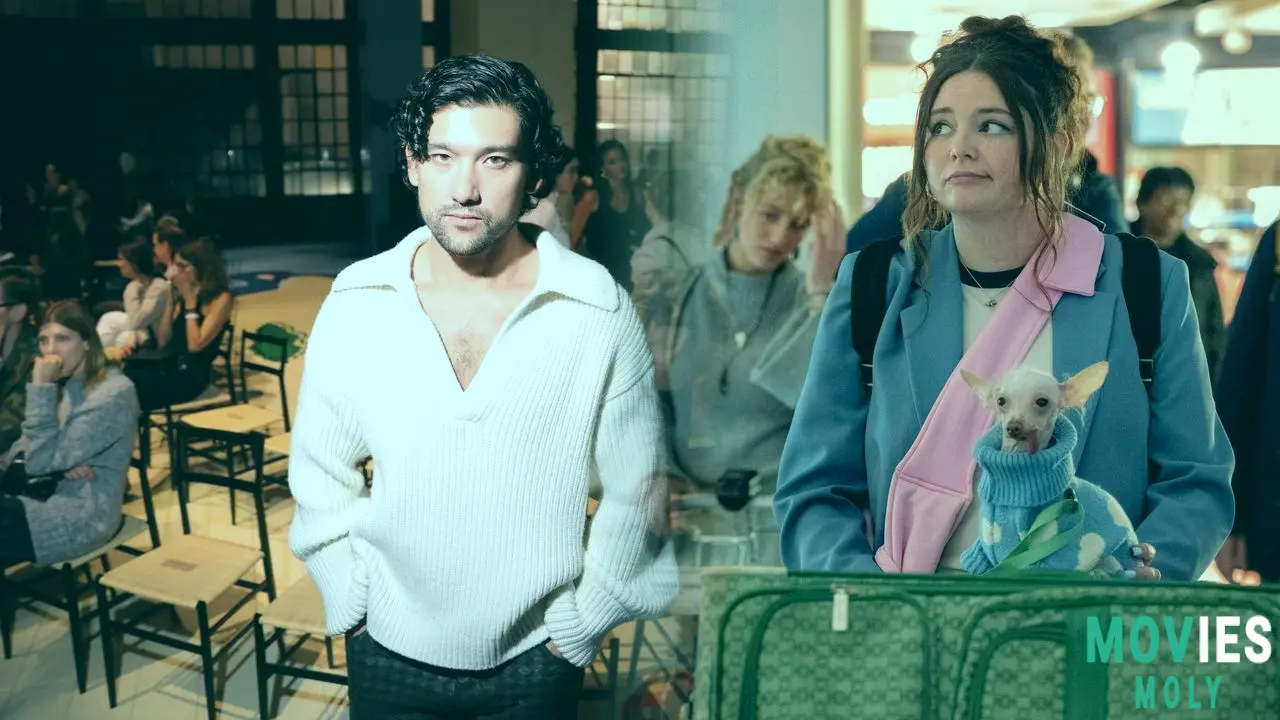Too Much, Lena Dunham's new Netflix show, is here. It gives a new look at romantic comedies. Jess, a New Yorker who moves to London after a bad breakup, finds an unexpected connection with singer Felix. The show has ten episodes and was co-created by her husband, Luis Felber. People may naturally compare Too Much to Dunham's earlier work, Girls, but Too Much makes its own mark by telling a story that speaks to modern viewers who want to see real portrayals of love, mental health, and self-discovery.
Will Sharpe's effect on Felix's character and chemistry on screenWill Sharpe plays Felix, a London musician who is having a hard time and has a lot of emotional baggage. Sharpe's performance adds depth to a character who is not your average love lead. His role as Felix, a pessimistic person looking for his place, is very different from Jess's bright-eyed American optimism. This dynamic makes Megan Stalter's Jess and the other characters on screen have a lot of chemistry.
Sharpe said that Felix "has no idea that he's in a romcom," which helped him decide how to act. This new point of view lets the character deal with his problems with addiction and commitment in a realistic way. Sharpe and Luis Felber, who wrote Felix's songs for the program, worked together to make the character even more real.
User: Health for Men
Will Sharpe on Felix in "Too Much": "He doesn't know he's in a romcom." A new look at the romantic lead!
Hollywood Reporter: User
In "Too Much," the chemistry between Megan Stalter and Will Sharpe is so real that it makes you feel like you're going to marry this person.
Jessica's Journey was Megan Stalter's big break.

Megan Stalter does a great job as Jessica, a New Yorker who works too much and is trying to start over in London after a bad relationship. People have complimented Stalter's portrayal of the "chaotic, heart-on-sleeve star" for how well it mixes humor and honesty. Jessica's journey is about changing her emotions as she deals with the pain of her prior relationship and the fact that the new city she lives in isn't what she thought it would be.
Stalter gives Jess a raw vulnerability that makes her easy to relate to, even though she has a tendency to hurt herself. Her ability to make people laugh and reveal deep emotional pain are two of the things that make the show work, even when there are other stories and guest stars. Even though Jess's demeanor is classified as neurotic and unpredictable, she and Felix have a real connection.
User: NPR
"Too Much" is a romantic dramedy that Meg Stalter shines in. She gives a fresh, quirky, and genuinely real performance.
Lena Dunham's vision and how she works with others to be creative
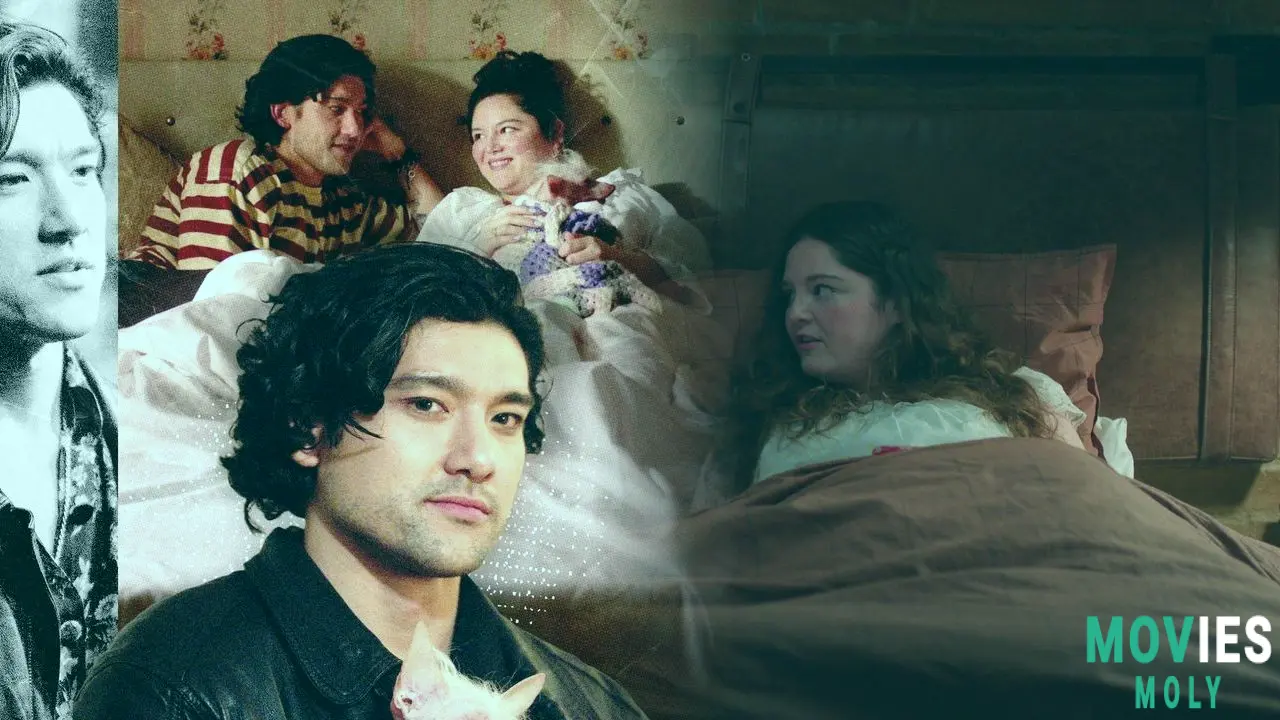
Lena Dunham co-created and wrote Too Much with Luis Felber. The story is based on her personal experiences of relocating to London and falling in love with a musician. Dunham says that the show is not a verbatim retelling of her courtship, but this semi-autobiographical base gives it a personal touch. The show pays tribute to classic romantic comedies while also showing modern relationships in a more honest way, recognizing how hard they are to make work.
Dunham's choice to cast Megan Stalter as the lead instead of herself shows that she is changing the way she creates. She plays Jess's sister, Nora, who has a smaller part. This change lets Stalter play a character that is similar to Dunham in some ways but has a unique innocence and groundedness.
Working together with Luis Felber was a key part of the show's growth. Felber, who is also a musician, co-created and co-wrote the show and was also the executive music producer and composer. Their shared love of music and the use of playlists to talk to each other in real life were the main themes of the presentation. Felber picked the songs for the soundtrack, which included original songs from his band Attawalpa and other musicians. Music was an important way to portray the story.
User: MSNBC
Quote: Lena Dunham's "Too Much" isn't "Girls" for the next generation, but it is a series that has to be made right now.
User: Different
Lena Dunham: "If anyone has anything to say about any of my actors, I don't say much these days, but try a b---." I'm not kidding around here.
A Closer Look at Too Much Themes and Episode Analysis
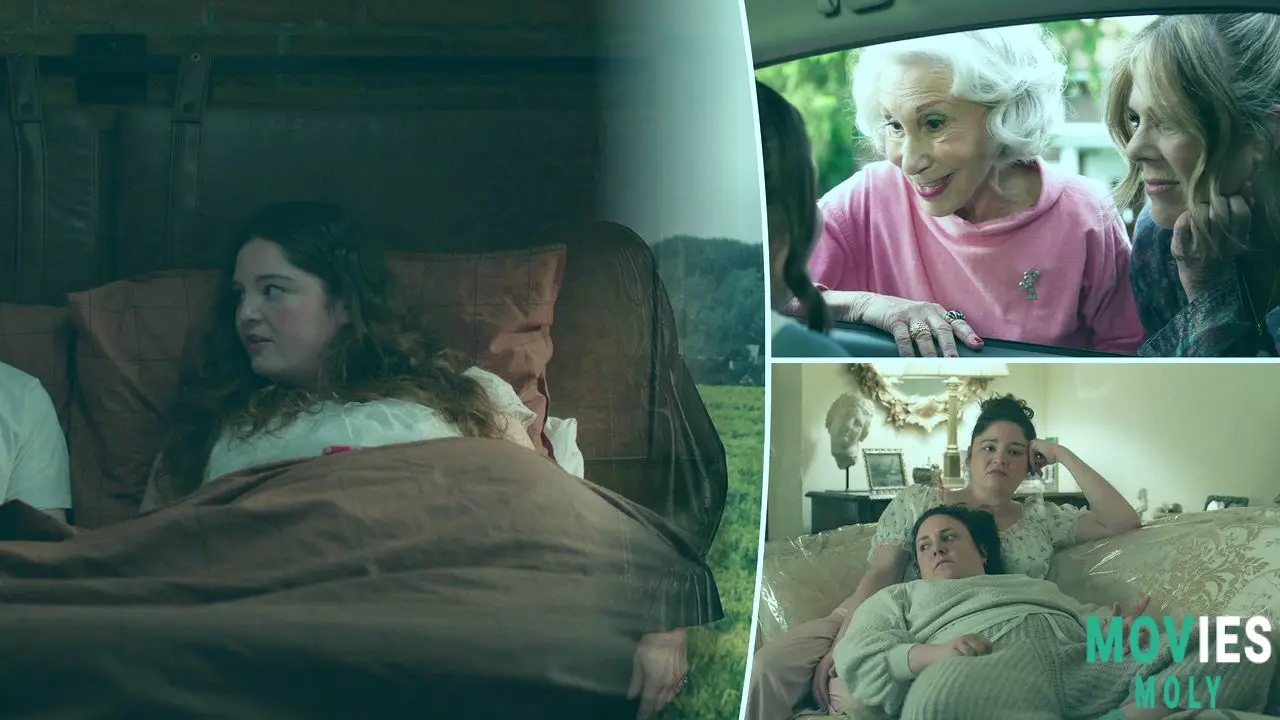
Too Much talks on a lot of modern issues, such mental health, how hard it is to be in a relationship, and how to embrace yourself. The show's ten episodes let you see how these themes develop and affect the characters' travels.
Jessica is in a lot of emotional pain at first since she is dealing with the fallout from her separation with Zev. The show shows how she puts herself down and how badly she needs to be validated, which shows how past trauma can make it hard to make new friends. As the season goes on, Jess's journey becomes one of self-determination as she learns to be herself without always looking for outside approval.
Jessica's abortion, which is shown in the fifth episode, "Pink Valentine," is a major plot point. The show talks about this subject in a sensitive way, showing that Jess makes this choice for herself without guilt or remorse. Dunham has worked with Planned Parenthood before on similar topics in Girls, so she made sure the representation was honest and didn't make anyone feel bad about it.
The show also talks about body image and desirability, especially through Jessica's character. Too Much challenges traditional beauty standards that are typically shown in the media by showing chemistry and desire for bigger bodies. Dunham is quite protective of Stalter in this way since she has been criticized in public for her own physique.
Positioning Too Much in the Modern Romantic Comedy World
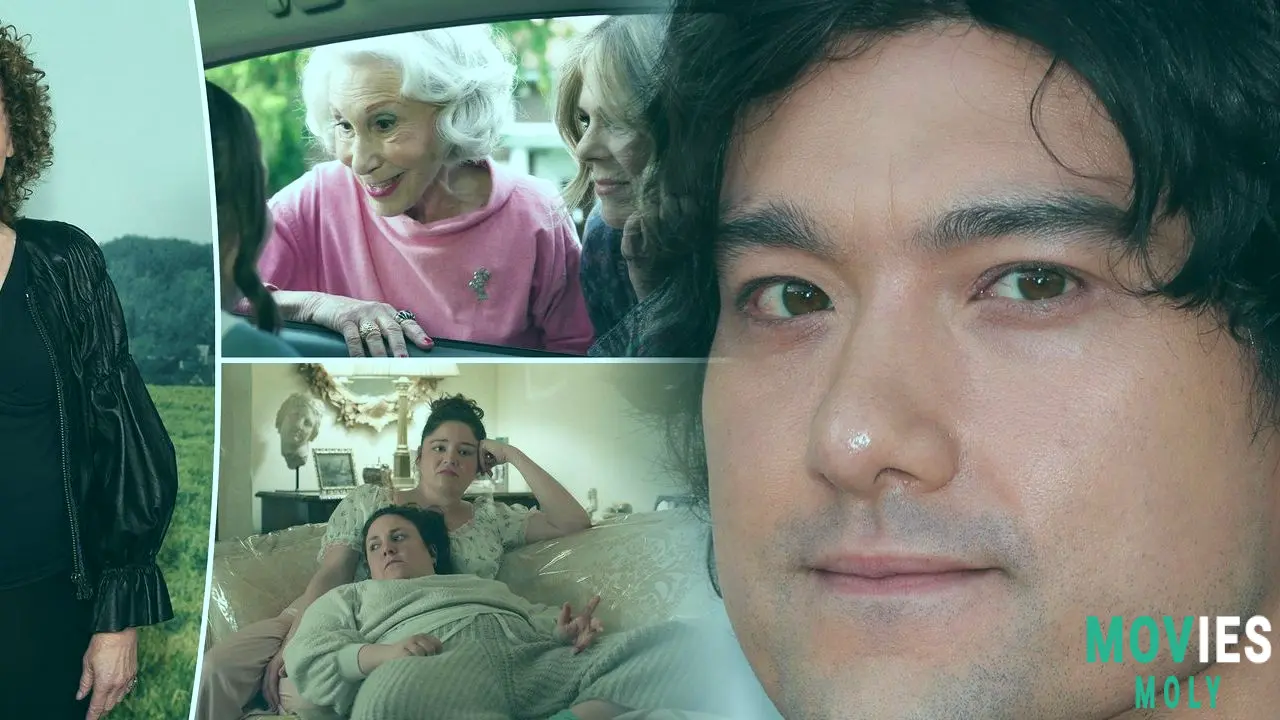
Too Much is a romantic comedy that stands out in a crowded market by using and then inverting genre cliches. It pays homage to classic British romantic comedies like Notting Hill and Bridget Jones's Diary, but it tells a more messy, genuine story about love.
Some modern rom-coms could gloss over problems, but Too Much shows how hard it is to make a relationship work. It has both funny and serious parts, which is a lot like how relationships are these days. What makes the show different is that it focuses on imperfect, sympathetic characters and honestly talks about emotional baggage. It gives a more nuanced view on finding love and accepting yourself.
Too Much: London's Cultural Impact
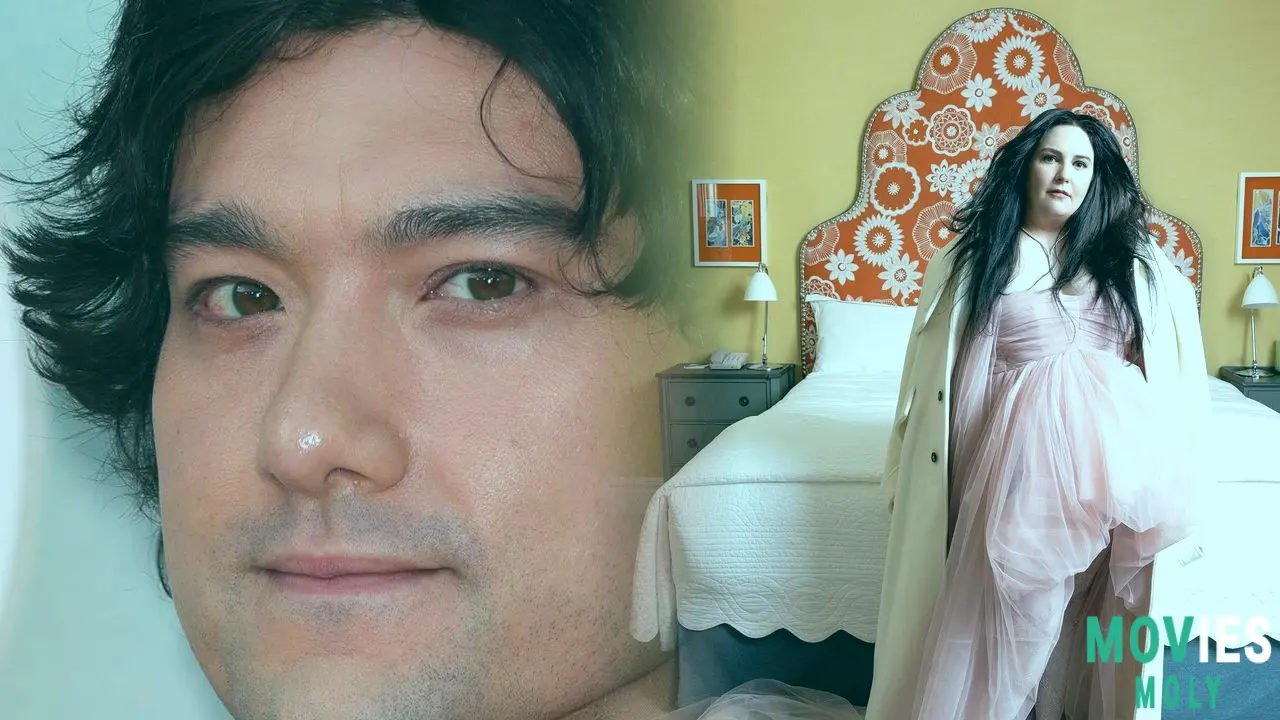
London is more than just a setting in the series; it also plays a part in Jessica's journey. Jess's first romanticized picture of London, hoping for a "Mr. Darcy" or "Notting Hill" fairytale, swiftly runs into the truth about the city. This difference in how Americans and Brits think and feel about things is a common theme that is often looked at in a funny way.
Some critics say that the show's portrayal of London might occasionally feel "entry level" or "romanticized," yet it also conveys a certain shabby appeal and the feeling of an American moving to a new place. The way the show shows everyday life in London, from its bars to its social interactions, makes the story more believable.
What the Audience Thought and Fan Theories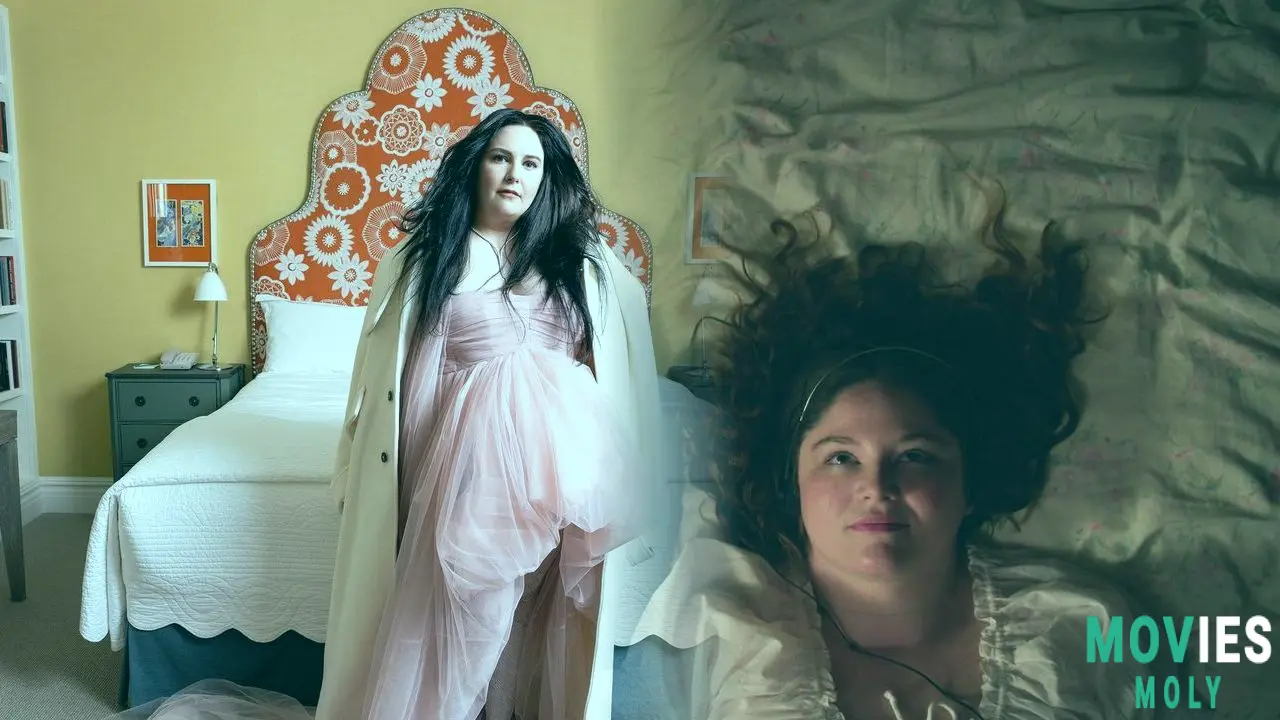
Too Much has gotten conflicting reviews from viewers since it came out on Netflix, which has sparked a lot of conversation on social media. The reviewers have mostly awarded it an 84% rating on Rotten Tomatoes, while the audience score is only 47%, which shows that people have mixed feelings about it. Some people have called it "brilliant" and "a bold take on love and identity," while others have said it was "unwatchable" or questioned the tempo and language.
Even though people have different opinions about the show, the fact that it gets people talking about its characters, issues, and Lena Dunham's changing style shows that it has a lot of fans. Many fans have really liked the chemistry between Megan Stalter and Will Sharpe.
Problems and successes in production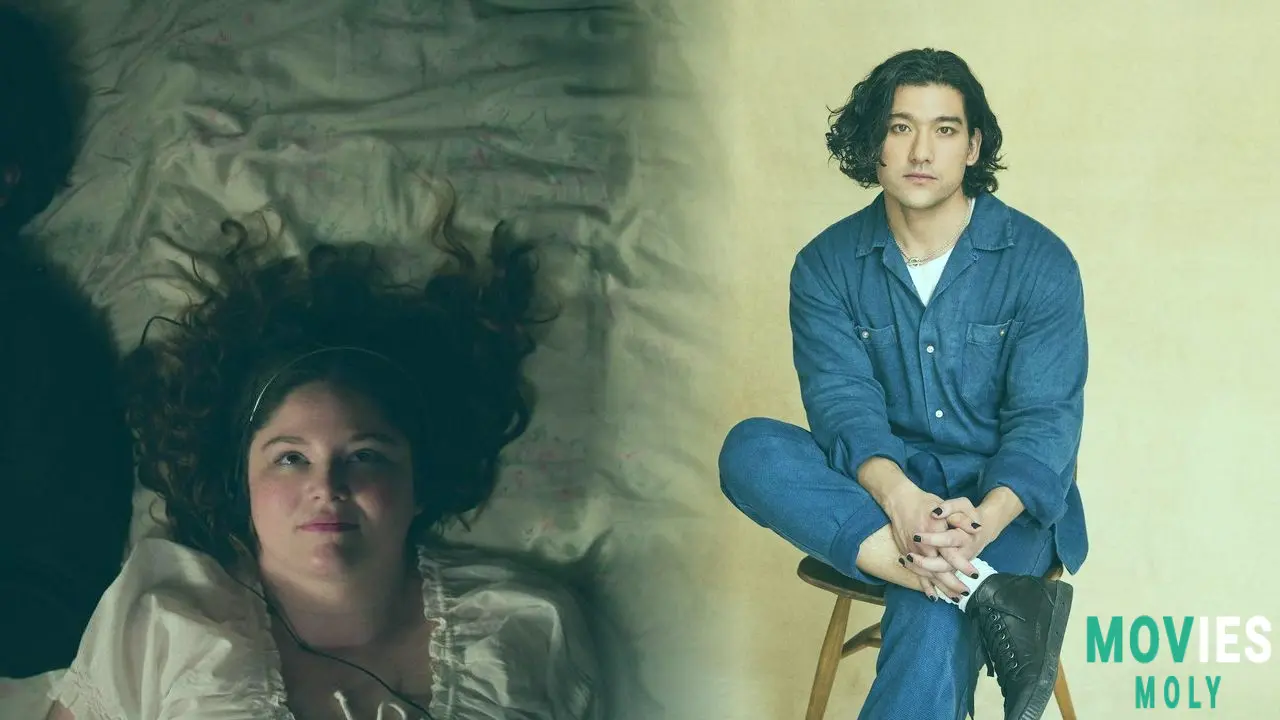
There were a lot of unusual production components that went into making Too Much, including a lot of improv. Rhea Perlman, a veteran actor who plays Jessica's grandma Dottie, said that the improv part was "scary" for her at first, which shows how well she was able to perform. Dunham liked that the show used intimacy coordinators because they helped make the sex scenes comfortable for the actors.
The casting process for Too Much was also a success. Dunham wrote the part of Jessica with Megan Stalter in mind before proposing the program to Netflix. Dunham worked hard to get Will Sharpe to play Felix since he had good ideas about the role.
What the Supporting Characters Bring
Too Much has a great supporting cast that adds depth to the story, in addition to the main two characters. Rhea Perlman's portrayal of Dottie, Jessica's grandma, is modern and open-minded. She talks about sex with her granddaughter, for example. Jessica's coworker and friend Kim, played by Janicza Bravo, gives her a reality check on her life as an expat. Adwoa Aboah plays Linnea and Prasanna Puwanarajah plays Auggie, both of whom add to the wide range of characters in Jess and Felix's world.
Andrew Scott, Stephen Fry, Rita Wilson (as Jessica's mother Lois), and Andrew Rannells (as Nora's ex-husband Jameson) all make guest appearances in the series. These performers bring star power and funny situations that you wouldn't expect.
Effects in the Long Run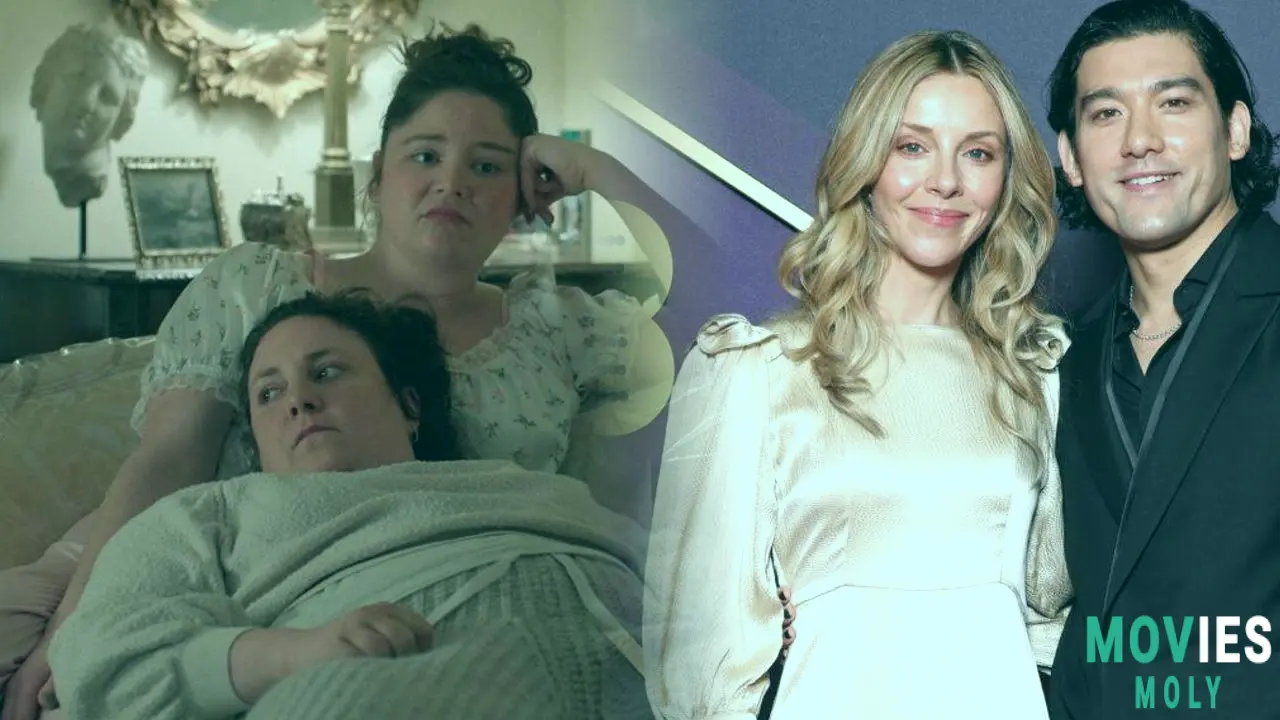
Too Much adds to the continuing discussions in the media regarding relationships, body image, and mental health. The show encourages body positivity by having a main character who doesn't fit traditional beauty standards and whose body isn't the main focus of the plot. It goes against the concept that size limits desirability by exhibiting real chemistry and closeness.
The show's honest look at mental health problems, self-sabotage, and the difficulties of modern love is a sign of a bigger trend in society toward talking about these things more openly. Too Much says that getting over old relationships and accepting who you are, flaws and all, is a journey that never ends.

